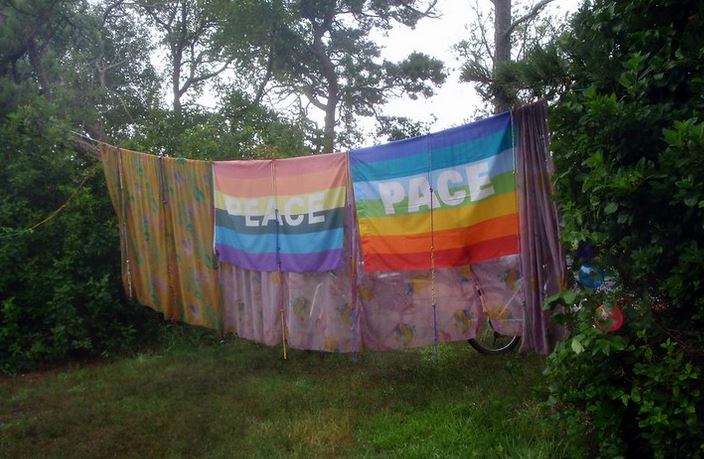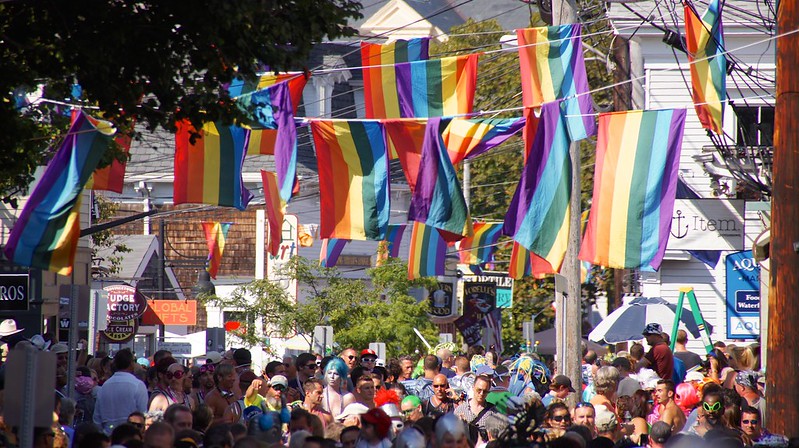The great outdoors has always held a special allure for many individuals, offering a respite from the hustle and bustle of everyday life and a chance to reconnect with nature’s tranquility. However, for LGBTQIA+ individuals, the camping experience has not always been one of inclusivity and safety. To appreciate progress, it’s essential to reflect on the history of LGBTQIA+ individuals in outdoor recreation. This journey, marked by challenges and triumphs, demonstrates the evolving landscape of inclusivity in the great outdoors.
A Legacy of Exclusion and a Journey Towards Inclusivity: LGBTQIA+ Experiences in Outdoor Recreation
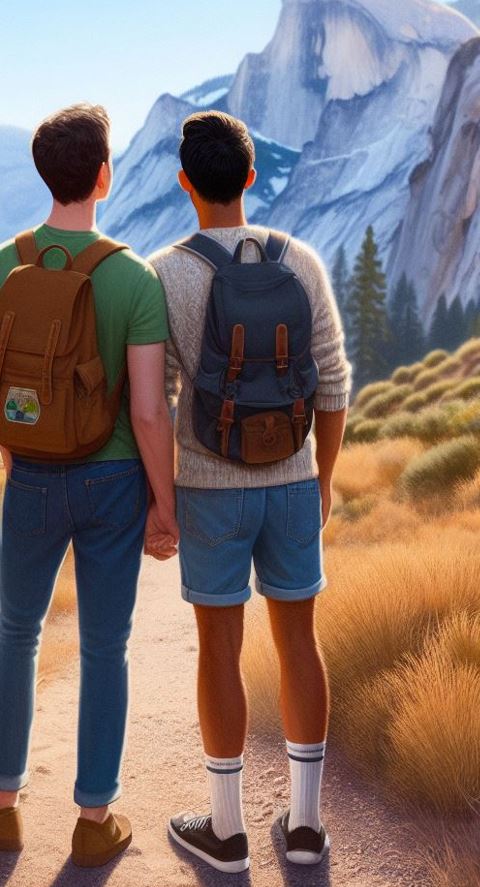 For decades, LGBTQIA+ individuals have faced significant barriers to participation in outdoor recreation due to widespread discrimination and exclusion. These barriers have ranged from overt forms of prejudice, such as being denied service at campgrounds or being subjected to harassment on trails, to more subtle forms of exclusion, such as a lack of representation in outdoor media and a scarcity of LGBTQIA+-friendly outdoor organizations.
For decades, LGBTQIA+ individuals have faced significant barriers to participation in outdoor recreation due to widespread discrimination and exclusion. These barriers have ranged from overt forms of prejudice, such as being denied service at campgrounds or being subjected to harassment on trails, to more subtle forms of exclusion, such as a lack of representation in outdoor media and a scarcity of LGBTQIA+-friendly outdoor organizations.
The exclusion of LGBTQIA+ individuals from outdoor recreation has had a profound impact on their ability to connect with nature, build community, and experience the joys of outdoor pursuits. It has also contributed to a sense of isolation and marginalization, further compounding the challenges faced by LGBTQIA+ individuals.
However, the past few decades have seen a growing movement towards inclusivity in outdoor recreation, with the rise of LGBTQIA+-specific organizations, like the Trevor Project, the increasing visibility of LGBTQIA+ outdoor enthusiasts, and the growing commitment of outdoor recreation providers to creating more welcoming spaces.
This progress has been driven by the collective efforts of LGBTQIA+ individuals, allies, and organizations who have tirelessly advocated for change. Their efforts have resulted in a more inclusive outdoor recreation landscape, with more opportunities for LGBTQIA+ individuals to connect with nature, build community, and experience the joys of outdoor pursuits.
Despite the progress that has been made, the journey towards full inclusivity in outdoor recreation is ongoing. There continues to be a need for more inclusive policies, practices, and representation in the outdoor recreation industry. Additionally, ongoing education and awareness-raising are crucial to combating prejudice and fostering a truly welcoming outdoor environment for all, as highlighted by initiatives like Outdoors for All and the National Park Service’s Diversity and Inclusion efforts.
By understanding the historical context of LGBTQIA+ experiences with outdoor recreation, we can better appreciate the significance of inclusive camping initiatives and recognize the ongoing need for creating more welcoming outdoor spaces for all individuals.
Celebrating LGBTQIA+ Inclusive Campgrounds
Cultivating Inclusive Campgrounds: A Haven for All
At the core of an inclusive camping experience lies an unwavering commitment to creating welcoming and affirming environments where every camper feels embraced and respected. LGBTQIA+ inclusive campgrounds transcend mere tolerance; they actively cultivate spaces that celebrate diversity, cherish individuality, and foster a profound sense of belonging for all.
The hallmarks of inclusive campgrounds extend far beyond physical amenities; they encompass a comprehensive approach to inclusivity, prioritizing the creation of welcoming spaces that embrace diversity, celebrate individuality, and foster a profound sense of belonging for all campers. These campgrounds recognize that inclusivity is not a one-time effort but an ongoing journey that requires continuous commitment and action.
A crucial element of fostering inclusive campgrounds is prioritizing comprehensive staff training. This training should equip staff with the knowledge and skills to create a welcoming and respectful atmosphere for all campers, regardless of their gender identity, sexual orientation, or any other personal characteristic. Staff training should cover topics such as LGBTQIA+ terminology, cultural sensitivity, creating gender-neutral facilities, and addressing unconscious bias.
Beyond staff training, LGBTQIA+ inclusive campgrounds implement inclusive policies that cater to the needs of diverse campers, including those with disabilities. These policies may include:
- Gender-neutral restrooms: Gender-neutral facilities are not just a matter of convenience; they are a vital aspect of ensuring comfort and safety for all campers, regardless of gender identity. More about gender-neutral facilities can be found on the National Center for Transgender Equality website.
- Flexible camping options for families and solo travelers: Inclusive campgrounds recognize the diverse needs of different camper groups. They offer flexible camping options that accommodate families of all structures, as well as solo travelers seeking a welcoming and supportive environment.
- Inclusive recreational activities: Recognizing that individuals have diverse interests and abilities, inclusive campgrounds offer a range of recreational activities that cater to a variety of preferences and physical limitations. This ensures that all campers have the opportunity to participate in enjoyable and accessible outdoor activities.
By prioritizing staff training, implementing inclusive policies, and cultivating a welcoming atmosphere, LGBTQIA+ inclusive campgrounds not only provide a safe and enjoyable outdoor experience for LGBTQIA+ individuals but also set an example for the broader camping community, fostering a more inclusive and equitable outdoor world for all.
Profiles of LGBTQIA+ Friendly Campgrounds
To showcase the diverse landscape of LGBTQIA+ inclusive campgrounds, here are a few examples that embody the spirit of inclusivity:
- Oz Campground, located in Unadilla, Georgia, exemplifies the spirit of inclusivity by providing a vibrant and welcoming atmosphere for all campers.
- Rainbow Ranch, nestled in Groesbeck, Texas, offers a tranquil retreat for LGBTQIA+ campers seeking a peaceful escape into nature, with amenities like a swimming pool, a sauna, and a meditation garden.
- Campit Outdoor Resort in Saugatuck, Michigan, is known for its friendly environment and diverse range of lodging options, catering to all preferences within the LGBTQIA+ community.
- The Woods Campground in Lehighton, Pennsylvania, provides a unique blend of natural beauty and inclusive community activities, making it a popular destination for LGBTQIA+ campers.
- Circle JJ Ranch Campground in Scio, Ohio, offers a rustic and scenic camping experience with a strong sense of community and inclusivity, perfect for those looking to connect with nature and fellow campers.
- Roseland Resort & Campground in Proctor, West Virginia, features a variety of amenities and outdoor activities, set in a picturesque landscape that welcomes LGBTQIA+ individuals and their allies.
These campgrounds aren’t just about amenities; they’re about experiences.
Exploring Inclusive Camping Opportunities
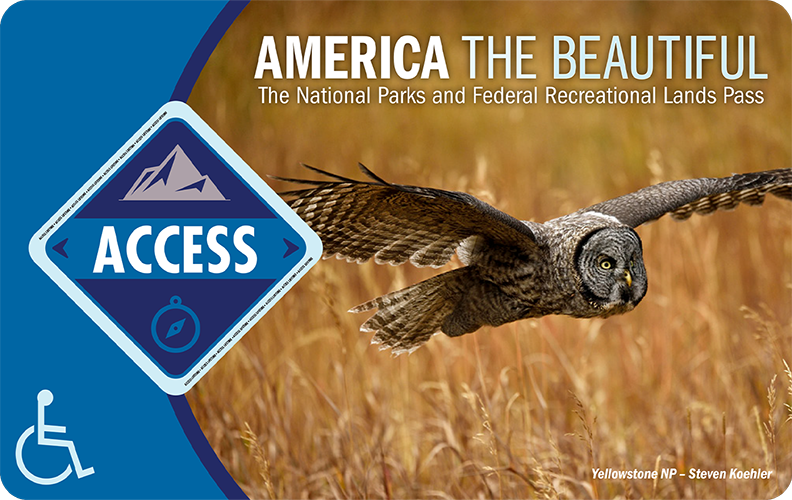
Finding Your Perfect Campsite
Navigating the vast array of campgrounds can be daunting, particularly for first-time campers or those seeking specific amenities and tailored experiences that align with their preferences and needs. Fortunately, the digital age has provided a plethora of tools and resources to streamline the campground search process, making it easier than ever to find inclusive and welcoming campsites. To further assist in your search, consider LGBTQIA+-friendly camping guides like Hipcamp, which often list inclusive sites and provide user reviews.
An integral aspect of inclusivity is ensuring accessibility for campers with disabilities. When embarking on your campground search, consider these tips for locating campsites that cater to a range of mobility and accessibility needs:
- Seek out detailed campsite information: Before making a reservation, thoroughly research the campground’s website or contact them directly to gather detailed information about the accessibility of facilities, activities, and terrain. Inquire about accessible campsites, restrooms, showers, and recreational areas.
- Utilize online accessibility resources: Leverage online resources like the National Park Service’s Accessibility Guide and the Recreation.gov website to identify campgrounds that meet your specific accessibility needs. These resources provide comprehensive accessibility information, including details on accessible trails, picnic areas, and visitor centers.
- Connect with the campground community: Engage with local LGBTQIA+ camping groups or online forums to gain insights from fellow campers with disabilities. These communities can provide valuable recommendations for accessible campgrounds and share their experiences navigating different campsites.
- Consider the terrain: Assess the terrain of the campground to ensure it aligns with your mobility needs. If you have limited mobility or use mobility aids, opt for campgrounds with paved pathways, gentle slopes, and accessible campsites.
- Inquire about adaptive equipment rentals: Check if the campground offers adaptive equipment rentals, such as all-terrain wheelchairs, beach wheelchairs, or shower chairs. This can significantly enhance your camping experience and allow you to fully participate in various activities.
- Communicate your needs clearly: When making a reservation, clearly communicate your accessibility needs to the campground staff. This allows them to provide any necessary accommodations and ensure a comfortable and enjoyable camping experience for you.
Remember, finding an inclusive campground extends beyond physical amenities; it’s about creating a welcoming and supportive environment where everyone feels valued and respected. By carefully considering accessibility factors and utilizing available resources, you can navigate the vast expanse of campgrounds and discover your ideal inclusive retreat. For those looking to delve deeper into LGBTQIA+ inclusive camping, numerous organizations and resources are available. Groups like CampOut and GayOutdoors provide information on LGBTQIA+-friendly campgrounds, organize events, and foster a community of like-minded outdoor enthusiasts.
Leveraging Community Insights
The LGBTQIA+ community is a rich source of knowledge and support, and tapping into local LGBTQIA+ groups and exploring online forums can offer valuable insights into identifying inclusive campsites. These communities often maintain lists of recommended campgrounds that have been vetted for their welcoming atmosphere and inclusive policies.
Tailoring Your Camping Adventure
Inclusive Packing List
Whether embarking on a maiden camping adventure or refining your existing gear, crafting a comprehensive packing list is essential for a successful and enjoyable experience, ensuring you have the necessary equipment and supplies tailored to your specific camping trip and preferences. For a detailed guide on what to include, see the REI Camping Checklist. Consider different camping styles when packing. For instance, backpacking requires compact, lightweight gear, while family camping may focus on comfort and convenience. Tailoring your packing list to the type of camping trip can enhance your overall experience. Remember, inclusive camping also means being mindful of others’ needs. Pack items like pronoun pins for yourself and others, or consider bringing games and activities that are inclusive of all genders and orientations.
Navigating Your Safe Space
Fostering a respectful and inclusive camping environment is paramount for ensuring a safe and enjoyable experience for all campers. Learn more about creating safe and inclusive outdoor spaces at Leave No Trace.
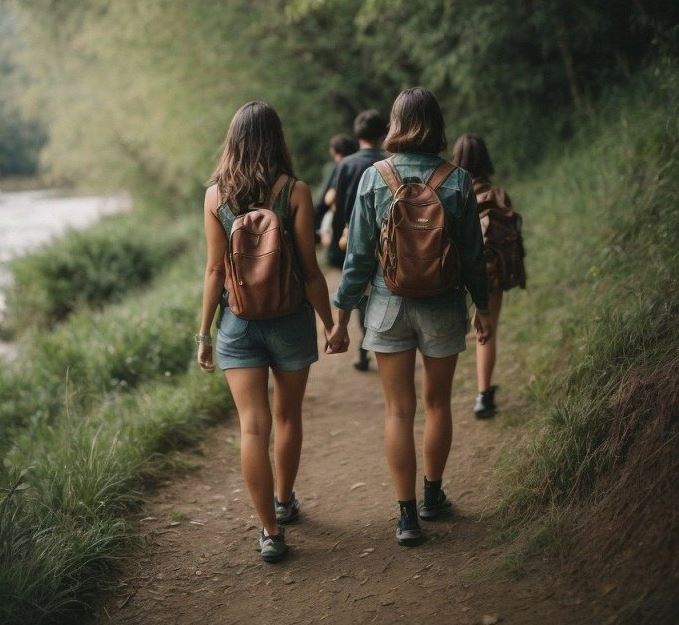
Image by Wolfgang Eckert from Pixabay
Building Inclusive Outdoor Communities Building LGBTQIA+ Outdoor Networks
The great outdoors offers a unique opportunity for LGBTQIA+ individuals to connect with others, share experiences, and celebrate their identities in an inclusive and supportive environment. LGBTQIA+ outdoor networks play a crucial role in fostering this sense of community and providing a platform for individuals to explore their passions for nature, adventure, and camaraderie. Additionally, LGBTQIA+-led outdoor adventure companies, such as HeTravel, play a significant role in creating tailored outdoor experiences that cater to the LGBTQIA+ community.
One such organization is the Venture Out Project, which offers guided backpacking trips specifically for the LGBTQ+ community. These trips provide opportunities for individuals of all experience levels to explore new destinations, build connections with fellow LGBTQ+ outdoor enthusiasts, and develop outdoor skills in a supportive environment.
Another notable example is Queer Nature, a non-profit organization that organizes retreats, workshops, and other immersive experiences focused on connecting LGBTQ+ individuals with nature and empowering them to become environmental stewards. Their programs emphasize personal growth, community building, and environmental awareness, fostering a deeper connection to the natural world.
In addition to these national organizations, there are numerous local LGBTQ+ outdoor groups that offer a variety of activities and events. These groups often provide opportunities for hiking, camping, kayaking, biking, and other outdoor pursuits, catering to diverse interests and skill levels.
Here are some additional examples of successful LGBTQIA+ outdoor groups/events:
- Wild Diversity: This organization focuses on creating inclusive outdoor experiences for BIPOC and LGBTQ2S+ communities, offering a range of activities and programs that promote diversity and inclusion in the outdoors. More information can be found on Wild Diversity’s website.
- OUT for Sustainability: This group organizes outdoor adventures that combine recreation with environmental education, promoting sustainable practices and stewardship of the natural world among LGBTQ+ individuals. Learn more about their initiatives at OUT for Sustainability.
- Benny’s Club: This organization hosts social events and outdoor activities for LGBTQ+ men, providing a space for camaraderie, connection, and personal growth. Discover more about Benny’s Club and their events on Benny’s Club website.
- Queer Surf: This group offers surf lessons and events for LGBTQ+ individuals, promoting inclusivity and access to the sport of surfing. Check out Queer Surf for more details.
- QPOC Hikers: This organization specifically caters to queer and trans people of color, providing a safe and supportive space for them to enjoy hiking and other outdoor activities. Follow their adventures and join their hikes through QPOC Hikers.
These examples demonstrate the vibrant and diverse landscape of LGBTQIA+ outdoor communities, offering a multitude of opportunities for individuals to connect, explore, and celebrate their identities in the natural world.
Whether through national organizations, local groups, or self-organized gatherings, the pursuit of outdoor experiences provides a powerful platform for LGBTQIA+ individuals to build connections, foster a sense of belonging, and celebrate their identities in an inclusive and supportive environment.
Allyship in Action
Allyship plays a pivotal role in cultivating a genuinely inclusive and welcoming outdoor experience for LGBTQIA+ individuals. Being an effective ally involves not only supporting LGBTQIA+ individuals but also actively challenging prejudice, discrimination, and exclusionary practices in outdoor spaces. The Human Rights Campaign’s guide to being an LGBTQ ally provides valuable insights into this important role.
Provincetown Image by Ted Eytan via flickr
Embracing Our Natural World with Open Arms
The Wonders Beyond the Campsite
Venturing beyond the campsite can further enrich the camping experience, offering opportunities to explore local communities, patronize queer-friendly businesses, and discover hidden gems that embody diversity and inclusivity, fostering a sense of belonging and connection with the local community. For discovering such places, consider using resources like Purple Roofs, which lists LGBTQ-friendly accommodations and travel options. Additionally, supporting local LGBTQIA+ businesses during your travels not only enriches your camping experience but also strengthens community ties. Look for queer-owned establishments, from cafes to outdoor gear shops, to immerse yourself in the local culture and contribute to the community.
Upholding Your Rights and Celebrating Protections
Understanding and exercising your rights as an LGBTQIA+ individual is paramount for a safe and enjoyable outdoor experience. Legal protections vary across different regions, so it’s essential to be aware of your rights in your chosen camping destination. A useful guide for this can be found on the ACLU’s LGBT Rights page.
Global Perspectives on Legal Rights and Protections
The legal landscape for LGBTQIA+ rights in outdoor recreation is diverse. In some countries, comprehensive anti-discrimination laws offer strong protections, while in others, such protections may be limited. Familiarize yourself with the local legal framework to understand your rights and prepare to assert them if necessary.
Resource List for Understanding and Asserting Rights
- International Lesbian, Gay, Bisexual, Transgender and Intersex (ILGA) World: Offers detailed information on LGBTQIA+ rights globally.
- Equality Maps: An online platform providing information on LGBTQIA+ rights around the world.
- Human Rights Campaign: Offers resources for LGBTQIA+ individuals traveling abroad.
- Field Mag: List of LGBTQ+ Outdoor Groups Supporting & Celebrating Diversity in Nature
Tailored Resources for Different Camper Types
Each camper’s needs can vary, so here are some tailored resources:
- For Families: QueerFamily and Family Equality provide support and resources for LGBTQIA+ families, helping them find inclusive camping options and community support.
- For Solo Travelers: Online communities like Queer Nature and Gay Travel forums are great for finding inclusive campgrounds and solo-friendly activities, offering a wealth of information and advice.
- For Experienced Adventurers: Organizations like Outward Bound offer tailored outdoor education and leadership opportunities, catering to those seeking more challenging and skill-building experiences.
Celebrating Protections and Advocating for Progress
While celebrating the strides made in LGBTQIA+ rights in outdoor recreation, remember that the journey towards full equality continues. Here’s how you can contribute:
- Support LGBTQIA+ organizations: Engage with and support groups like GLAAD and The Trevor Project.
- Educate others: Share resources from PFLAG to help educate those around you about LGBTQIA+ issues.
- Challenge discrimination: Learn about and advocate against discrimination with resources from the ACLU.
- Advocate for inclusive policies: Stay informed on policy changes and advocacy through Human Rights Campaign.
By understanding their rights and advocating for progress, LGBTQIA+ individuals and allies can ensure that outdoor spaces remain welcoming and inclusive for everyone to explore and enjoy.
Helpful Resources for LGBTQIA+ Inclusive Camping
- ILGA World – International Advocacy for LGBTQIA+ Rights
- Description: Offers detailed information on LGBTQIA+ rights globally, serving as an essential resource for understanding diverse legal landscapes in outdoor recreation.
- Human Rights Campaign – Advocacy and Resources for LGBTQIA+ Travelers
- Description: Provides resources and guidance for LGBTQIA+ individuals, particularly useful for those traveling and seeking safe outdoor experiences.
- Queer Life Space – Empowering LGBTQIA+ Youth Outdoors
- Description: Focuses on outdoor experiences for LGBTQIA+ youth, encouraging exploration and personal growth in a supportive environment.
- Family Equality – Support for LGBTQIA+ Families
- Description: Advocates for LGBTQIA+ families, offering invaluable support and resources, ideal for families seeking inclusive camping experiences.
- Outward Bound – Tailored Outdoor Education and Leadership
- Description: Provides outdoor education and leadership opportunities, including programs designed for the LGBTQIA+ community, suitable for experienced adventurers.
Country-Specific Resources:
- United States: ACLU LGBT Rights: ACLU – LGBT Rights
- Description: Offers legal resources and advocacy support for LGBTQIA+ rights in the United States.
- Canada: Egale Canada
- Description: Advocates for LGBTQIA+ people’s human rights in Canada, providing resources and support for inclusive policies and practices.
- Australia: ACON Health – LGBTQ Health in Outdoor Recreation
- Description: Focuses on health and wellbeing advocacy for LGBTQIA+ communities in Australia, including safe practices in outdoor activities.
- United Kingdom: Stonewall UK
- Description: A leading organization in the UK advocating for the equality of lesbian, gay, bi, and trans people across Britain.
These resources have been carefully selected to enhance your camping experience, ensuring that you have access to safe, inclusive, and welcoming outdoor environments. Whether you’re a first-time camper or an experienced adventurer, these links provide valuable insights and support for a memorable and inclusive camping journey. We hope you find this comprehensive list of LGBTQIA+ camping resources, including online forums, equipment guides, and community networks helpful.
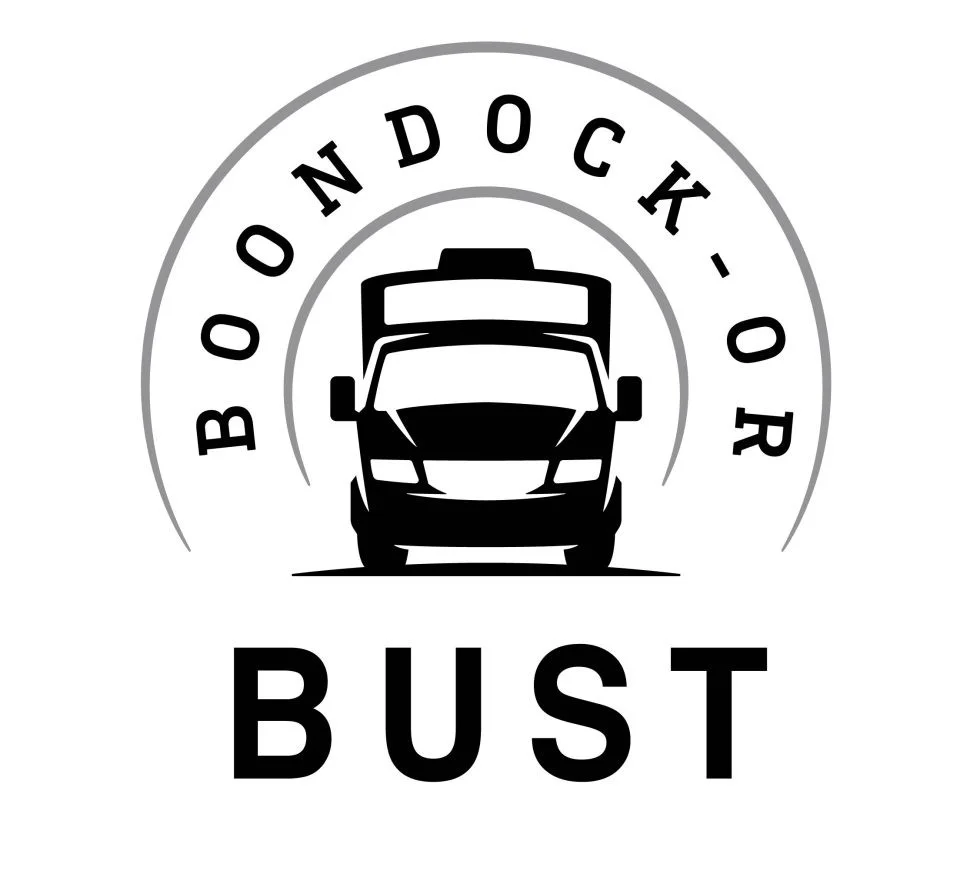
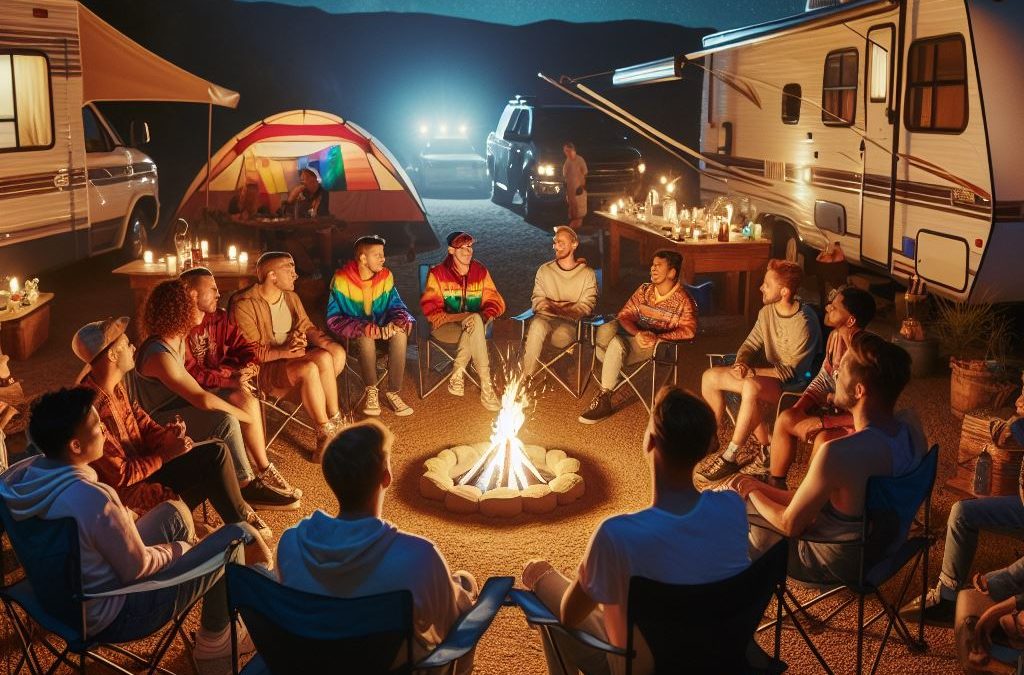
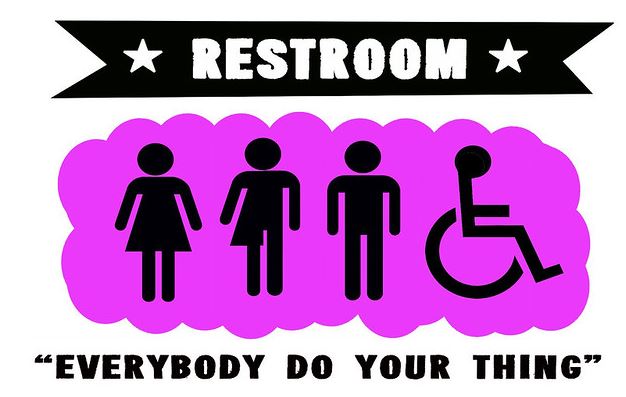 Image by
Image by 